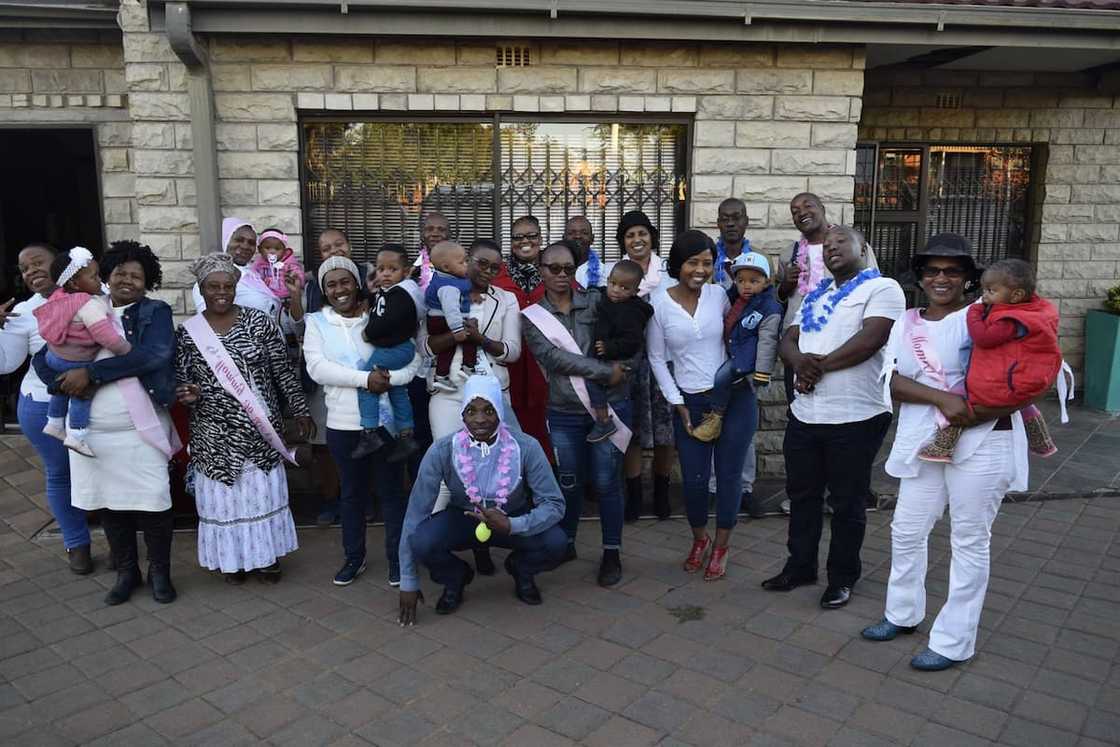Social worker courses, fees, and requirements 2021: All you need to know
Social worker courses are among the most sought programmes in South Africa. The venture offers students a broad scope of skills required in positively impacting community development. So, check out these details about social worker courses and how much you might benefit from studying.

Source: UGC
Social worker courses offer you the career opportunity to improve the quality of life of individuals and the community's well-being. This field integrates knowledge about community and development, human interaction, social policy and administration and manipulation of political, social and psychological factors upon society. Social worker courses combine theories from philosophy, psychology, medicine, politics, and economics to better understand the social mechanisms of human beings.
Social worker courses in South Africa
Studying a social worker course equips you with the following skills and qualities: active listening, empathy, persuasion, critical thinking, cooperation, social perceptiveness and communication and interpersonal skills. Professional social workers provide services to communities or individuals suffering from lack of opportunities or information, poverty, persecution, social injustice, violation of justice or abuse.
Social worker requirements
What subjects are needed to become a social worker? Social worker course requirements differ from one institution to the other. However, you should do well in Mathematics and languages to secure a chance in any institution.
Is social work a good career in South Africa?
In South Africa, the social worker should register with The South African Council for Social Service Professions (SACSSP). You need to have a degree to register with SACSSP. The council and its professional boards work hand in hand to ensure the integrity of professionals and the public at large.
What are the courses in social work?

Source: Facebook
Which course is best for social work? Top universities in South Africa offer undergraduate and masters programmes in the principles. Colleges also provide the course at the bachelor's degree level.
Where can I study social work courses in South Africa?
This list provides options in how the different institutions package their programmes at different levels:
- Master in Counselling Psychology from the Nelson Mandela Metropolitan University
- Bachelor in Psychology from the Nelson Mandela Metropolitan University
- Bachelor of Social Work from the University of Cape Town
- Bachelor of Social Work from the University of Free State
- Bachelor of Social Work from the University of Free State
- Master of Social Work from the University of Free State
- PhD in Social Work from the University of Free State
- Bachelor of Arts in Social Work from University of Witwatersrand
- Master of Arts in Social Work (school social work) from University of the Witwatersrand
- Master of Arts in Social Work (Occupational) from University of the Witwatersrand
- PhD in Social Work from the University of the Witwatersrand
- Bachelor of Social Work from the University of Pretoria
- Master of Social Work from the University of Pretoria
- PhD Social Work from the University of Pretoria
- Bachelor of Social Work from the Stellenbosch University
- Master of Social Work from the Stellenbosch University
- Bachelor of Social Work from the University of Johannesburg
- Bachelor of Social Work from the University Of South Africa
- Bachelor of Social Work from the University Of Zululand
- University of the Western Cape's Bachelor of Social Work
The South African College of Applied Psychology is also reliable for social worker courses in colleges. This is an extremely rewarding career path to pursue.
Social Worker courses fees
Each of the institutions mentioned above offers the courses at different rates. However, to be a professional, you should register with SACSSP. Registration for new members costs R529. Restoration fees cost R666.
Frequently Asked Questions

Source: UGC
If you are thinking about venturing into this space and still have questions, check out these answers. The answers will help you put your worries to rest. They will also help you make an informed decision.
How many years do you have to study to become a social worker?
So, how long does it take to study Social Work in South Africa? It takes between four to six years to be academically qualified for this course. Pursuing a bachelors degree takes four years, while a masters degree takes an additional two years.
What subjects are needed to study social work courses in South Africa?
Social worker courses in colleges and universities have different entry requirements. However, the critical subjects required are English and Mathematics. Possession of a National Senior Certificate or a National Certificate with an achievement rating of Level 4 or better is also required.
What qualifications do I need to become a social worker?
Most entry-level jobs require you to have a bachelor's degree as the minimum requirement. However, a masters degree could make you stand a higher chance. Nonetheless, undergraduate majors in sociology, psychology or related fields meet the hiring requirements of most agencies.
Can I become a social worker without a degree?
No, you cannot become a social worker without a bachelors degree. A degree is a minimum requirement. However, you can secure a career as an assistant social worker.
The listed social worker courses are among the most marketable in the country. Professionals in this field have many careers to venture into; hence, it is a profitable profession. It is also a personally fulfilling role and you can change lives.
READ ALSO: All UKZN courses, requirements, duration and campuses that offer them
Briefly.co.za recently published details of all UKZN courses, requirements, durations and campuses. You should check them out!
The University of KwaZulu-Natal is one of the top institutions of higher learning in South Africa. It offers courses in Agriculture, Engineering, Humanities, to mention a few. Check the details for the entry requirements and durations.
DISCLAIMER: This article is intended for general informational purposes only and does not address individual circumstances. It is not a substitute for professional advice or help and should not be relied on to make decisions of any kind. Any action you take upon the information presented in this article is strictly at your own risk and responsibility!
Source: Briefly News





